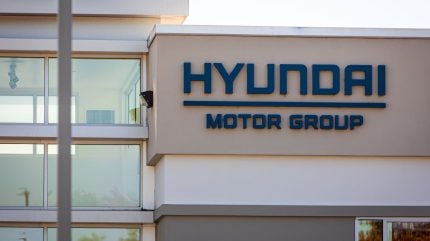
Hyundai Motor Group has unveiled plans to significantly increase its investment in the US to $26bn from 2025 through 2028.
This move aims to strengthen the group’s commitment to innovation, job creation, and sustainable growth, particularly within the automotive, steel, and robotics sectors. It also comes as international companies grapple with the more protectionist stance of the US on international trade policy, led by President Donald Trump’s administration.

Discover B2B Marketing That Performs
Combine business intelligence and editorial excellence to reach engaged professionals across 36 leading media platforms.
The additional $5bn investment complements the previously announced $21bn allocation from March this year, reflecting the group’s strategic focus on expanding its US market presence.
The strategic investment will include expanding the US auto production capacity of the group’s automotive affiliates, Hyundai Motor Company and Kia Corporation. This expansion is designed to meet American consumers’ needs more efficiently.
The initiative will also include the construction of a new steel mill in Louisiana, enhancing local supply chains and industrial resilience, particularly for the automotive manufacturing sector.
In addition, the group will establish an advanced robotics facility with an annual capacity of 30,000 units.
Hyundai Motor Group’s commitment extends to accelerating technology commercialisation through its US-based tech affiliates, such as Boston Dynamics in robotics and Motional in autonomous driving.
The group is also expanding collaborations with top American companies in future technologies, including AI, robotics, and autonomous driving.
These strategic investments are expected to generate approximately 25,000 new direct jobs in the US over the next four years.
Hyundai Motor Group’s investment in the US economy exceeds $20.5bn since its market entry in 1986.






